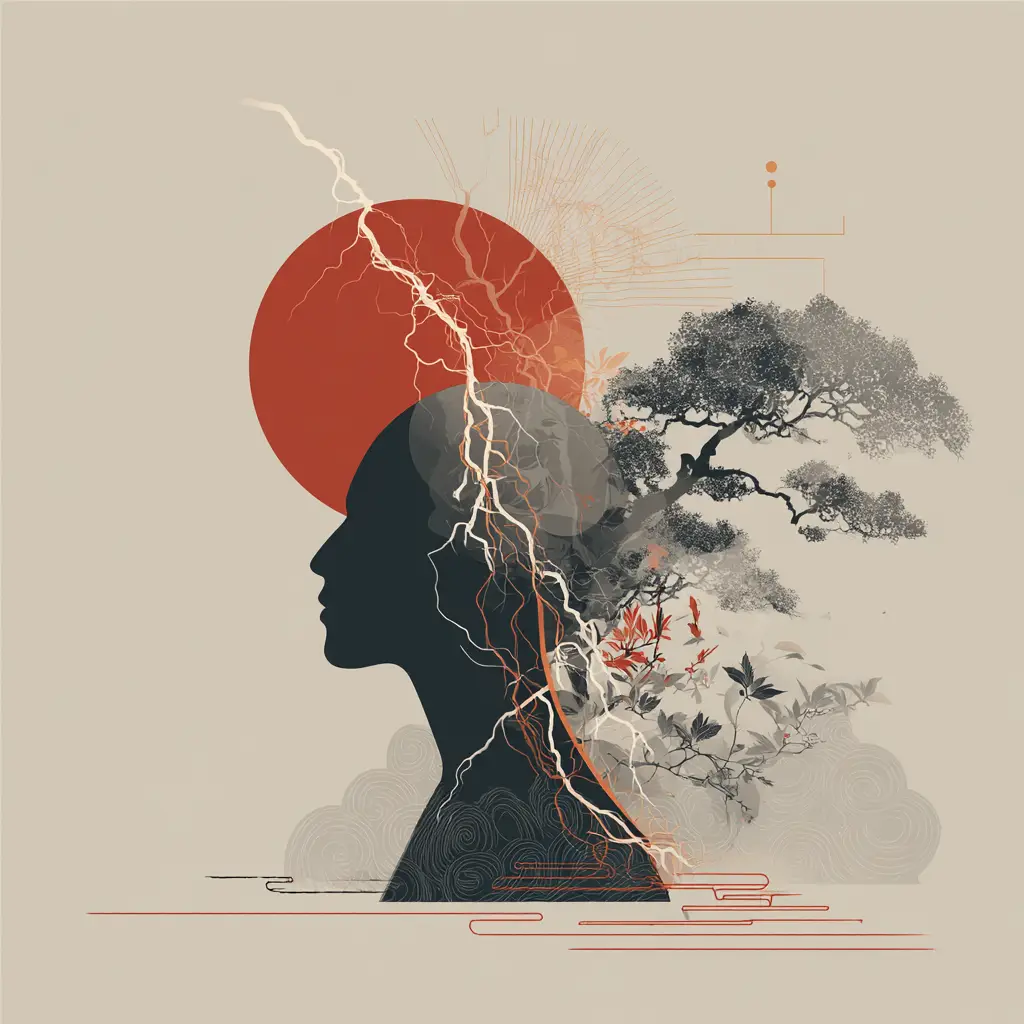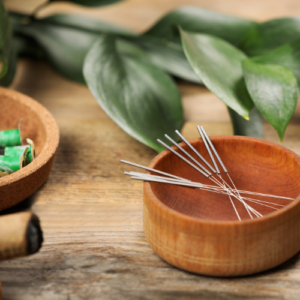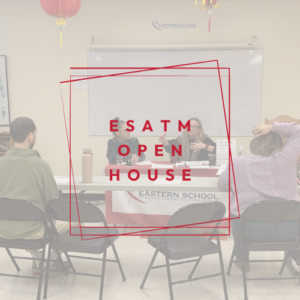Dr. Matthew Fellner, DACM, LAc., Acupuncture Department Head ESATM
How’s your energy? Are you full of energy? Do you need more? Do you have too much? Our ability to exist in this world and be productive members of society depends on how we manage the energy we have. Some people are always tired and need more energy. Other people are bounding with energy to such an extent that they have trouble sleeping. Despite all this talk of energy and its importance in our lives, very few people understand the intricacies of how to manage their own energy to live a healthy & balanced life. In this 3 part blog, I’ll introduce the 3 C’s of energy management and offer some tips to effectively incorporate the main principles of how to make your energy work more efficiently in your life.
Understanding how to manage your energy starts with appreciating that there are only 3 possible things you can do to energy to make it work for you: Create, Circulate, & Conserve.
In this third part I’ll be discussing energy Conservation
In the 1st article we explored how we create energy and a few tips to maximize how our bodies develop that energy through food & air. In the 2nd article we explored how circulation ensures that your energy is utilized most efficiently. Now we need to explore the most underappreciated and overlooked aspect of energy management. Conservation allows us to store energy and maintain a reserve that can be used whenever we most need it. Without conserving energy, we run the risk of having a deficit that can have dramatic implications for our health, especially later on in life. It’s not unlike having a savings account or retirement fund. If you only earn money(create), then spend money(circulate), it’s too easy to eventually run out and be left with nothing in the bank. The same applies for managing your energy.
The only ways to conserve energy are sleeping & meditation.
We’ll explore both but first it’s important to realize that when we speak about energy conservation, we are more specifically speaking about how the body prepares for and responds to stress. Stress is a buzzword and is mainly thought of in a pejorative sense because we see the negative effect it has on our health. But keep in mind that stress is absolutely necessary to function properly in this world. Without stress, we would not be able to stand upright, we would not be able to exercise and grow, we would not be able to learn and achieve, and we would not be able to overcome obstacles. Stress becomes dangerous when we are constantly exposed to it, without any mechanism to offset the deleterious effect it has on our body/energy. When we don’t conserve energy properly, then we create an environment in which stress is more likely to have a negative effect on our health. In the previous 2 articles I introduced equations, and here I would like to introduce another, albeit a tad glib.
Repeated exposure to stress + inability to conserve energy = poor health
Notice in my very scientific formula that stress, by itself, does not cause disease. It needs an opportunistic environment to take advantage of areas of weakness. When we are exposed to a life-threatening situation, our bodies respond by bombarding us with stress hormones and chemicals that simplify all of existence down to 2 options: fight or flight. The only things that matter in this scenario are Heart rate, breathing rate, muscle contraction. Every other body process is considered not important in the moment and will effectively “take a back seat”. This includes metabolism, digestion, rationale thought, emotional stability, bowel function, etc.
Luckily, most of us are not exposed to life-threatening situations on a regular basis. But we all are exposed to less dangerous situations daily that produce the same stress response. Sometimes we are not even finished processing one stressor, when the next one already starts. There are traffic jams, money concerns, pandemics, children, bosses, politics, etc. that all cause the same response in the body. Guess what happens? All of the things that are considered “non-essential” will fail to function efficiently and we will be left vulnerable to disease. Studies have shown that continuous stress causes chronic pain & inflammation, weight gain, poor circulation due to increased blood clotting, fatigue, depression, anxiety, and susceptibility to stroke, heart disease, and cancer.
This “fight or flight” mechanism in the body is related to an overactive sympathetic nervous system response due to stress. The key to reversing this and not allowing it to have negative health effects is to make sure the body can easily slip into the para-sympathetic system, which is also called “rest & digest”.
This segues into how and why the 2 forms of energy conservation are so crucial. We have to provide our body with an environment that can adequately respond to the demands of a hectic society and lifestyle. The only way to do that is to balance the incessant stress and activity with what you may simply call “quiet time for the brain”. Sleep is the most obvious way to achieve that. We spend upwards of 8-9 hours a day shutting everything down so our body can recharge and regroup for the demands we put on it. More important that the number of hours is the quality. Not everyone needs the same amount of time, but when we sleep, we should fall asleep easily, stay asleep, and awake feeling refreshed.
For people who have difficulty sleeping I always recommend getting acupuncture. Acupuncture can counter the negative effects of stress by immediately allowing the body to enter “rest & digest” mode. Most people are surprised when they fall asleep on the table with needles in them, but it makes perfect sense. When the body wants to recharge and heal, it naturally needs to tone down the overactive sympathetic nervous system and enter the more calming state of parasympathetic “rest & digest”. Acupuncture facilitates that as quickly as any medication, with fewer side effects.
So how does meditation fit into this equation? When most people think of meditation they envision sitting cross-legged in a monastery or temple chanting and giving up all worldly possessions. This couldn’t be further from the truth. In fact, the only goal of meditation is to be in the moment and conscious of the present state. When we are in the moment and conscious of the present state, we can manage our thoughts and emotions and better decide how to distribute energy. We waste less energy thinking about the past and create less anxiety about things that may happen in the future. In the 1600’s French philosopher and mathematician Blaise Pascal wrote “All of humanity’s problems stem from man’s inability to sit quietly in a room alone,”.
This may be one of the most difficult things to do in the world today. Everything is competing for our attention and trying to force us to respond immediately. There are constant advertisements, social media videos, uploading, streaming, and instantaneous info that comes from our phones and watches. But that is why we need it so much. All of that constant stream of info and images forces us to use brain energy. You may think it’s stimulating, but in reality it has an insidious draining effect on our mental energy. Naturally there is no escaping this completely. We have to live in society and adapt to the demands and trends that are omnipresent. But…if we do not develop a way counter the incessant bombardment of stimuli, then we are always going to be running an energy deficit.
Meditating is truly one of the simplest exercises you can do to benefit your health. But it is almost impossibly difficult for many people who are not used to sitting quietly. Luckily, you only need about 10 minutes per day to reap the benefits. There are way too many strategies to list here but I will offer you 2 very simple mindfulness exercises that can have a profound effect on your overall mental energy.
1. Find a quiet space. It can be pretty much anywhere, but it is crucial to make sure you will not be disturbed. I like going outside but your house or apartment can be just as effective. The key is to make sure you are not disturbed. No phone, no computer, no smart watch, no kids, no work emails. I promise you can do this! You only need 10 minutes. Just sit quietly and pay attention to your breath. Inhale through the nose gently. Notice any tension in your body. Then exhale through the nose gently and add 2 or 3 seconds to the exhale to make it longer than the inhale. Start at your head and work your way down to your feet if you are anxious. Start at your feet and work your way up if you are depressed or fatigued. Right before bedtime is another great time to try this. You will lose your focus many times. That is fine. Just keep coming back to your focal point which is your breath/body. That is the exercise. No winning or losing or failure, just be
2. The other visualization I like using is what I call the vacation meditation. Sit in your quiet space like above. But as vividly as you can imagine, conjure up your favorite vacation destination. It can be somewhere you have been, or somewhere you want to go. But be there as clearly as you can imagine. Notice the temperature, notice the smells, the sounds, and the feel of the place. Science has proven that Your brain cannot tell the difference between what is real and what is imagined. The more vivid you can make it, the better the effect will be.
Combining acupuncture to improve your sleep and practicing a little meditation will have profound benefits for your energy and your overall mental health. It is so important in today’s world to protect our energy and make sure we can thrive, both physically and mentally. The only promise I make is that you will feel better if you try it, and nothing will change if you don’t





